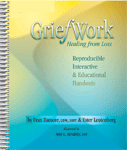On Journaling
by Ester R.A. Leutenberg

Ester R.A. Leutenberg
Journaling is a time-honored way to help people sort out their thoughts and feelings. Many different techniques can be used to begin a journaling practice. One way is to set aside some time each day−maybe 15 to 30 minutes in the morning−to simply write whatever comes to mind. Another way is to pick up a journal and write when the person has a “thinking loop” that seems stuck. In the act of writing, often the thought or situation will lose its intensity. Others find that journaling is a substitute for talking. Some people use their journals as a way of writing letters to their loves ones.
Journaling has been such a valuable tool for me in my process of grieving over our son Mitchell’s death by suicide. I journal for my own pleasure, release, to sort out feelings. If every time I had another insight or thought about Mitch’s life, mental illness, or death – and would mention it to loved ones or friends – they would all be weary of hearing about it. Instead, I journal often and still talk about Mitch at times with family and friends. It seems to be a good compromise, and keeps me grounded.
Each year I take my journaling to another level – on the day of Mitch’s death and send an email out to everyone I know – this was my 2011 letter.
Dear family and friends,
Twenty five years ago today, November 22, 1986, at 30 years of age, our son died by suicide. We commemorate this day – we celebrate Mitchell’s life. Mitch was an exceptional son, grandson, brother and uncle.
For eight years we kept the promise Mitchell asked of us, from the time of his first suicide attempt, not to tell anyone he had a mental illness. He felt it was a ‘shonda’ – a shame, an embarrassment, people wouldn’t value him for who he was, only the see the mental illness. The moment Mitch died, we told anyone and everyone. We were not ashamed or embarrassed. He had a disease, a mental illness. Although Mitchell did not discuss it, we hope other people will as the stigma of mental illness slowly lifts.
To quote Glenn Close about her family members…
“The stigma is toxic. And, like millions of others who live with mental illness in their families, I’ve seen what they endure: the struggle of just getting through the day, and the hurt caused every time someone casually describes someone as “crazy,” “nuts,” or “psycho.”
Even as the medicine and therapy for mental health disorders have made remarkable progress, the ancient social stigma of psychological illness remains largely intact. Families are often unwilling to talk about it and, in movies and the media, stereotypes about the mentally ill still reign.
The World Health Organization (WHO) estimates that by the year 2020 mental illness will be the second leading cause of death and disability. Every society will have to confront the issue. The question is, will we face it with open honesty or silence?”
I remember when my mother would whisper the word cancer. We’ve come a long way. Talking and dealing with mental illness should be no different from having cancer, diabetes or any other disease.
“We have to get the word out that mental illness can be diagnosed and treated, and almost everyone suffering from mental illness can live more normal lives.”
~ Rosalynn Carter
Twenty-five years is such a long time! We miss the hugs, conversations, laughter and even the tears. We miss the family time with him – he SO loved his family (especially his two nieces!) Mitchell would have loved the 7 more nieces and nephews that were born after his death. He would have loved Tucson and would be so happy for us. At one point, a few years before he died, he visited Vermont and came home with plans to build homes for our entire family to vacation together.
We do know that Mitch looks after us. We feel his spirit and it warms us.
We think about him every day – with love – and with admiration for trying so hard to stay alive.
Many people find that they are surprised at how their thinking has evolved when they re-read their journals. For most people the changes that they are experiencing are subtle. Often people grieving do not realize the hard work that they have done, nor do they recognize the changes they have made.
Re-reading a journal can provide an opportunity for self-appreciation.
The GriefWork Companion was developed to help adults who are grieving heal from their losses. The GriefWork Companion contains worksheets, quotations, educational and journaling pages. It is a user-friendly book and self-help resource. We live in a society where people are expected to get over their loss quickly and we understand this is not realistic. We know there are many ways that people grieve and we support each person’s right to grieve in an individual and unique fashion.


